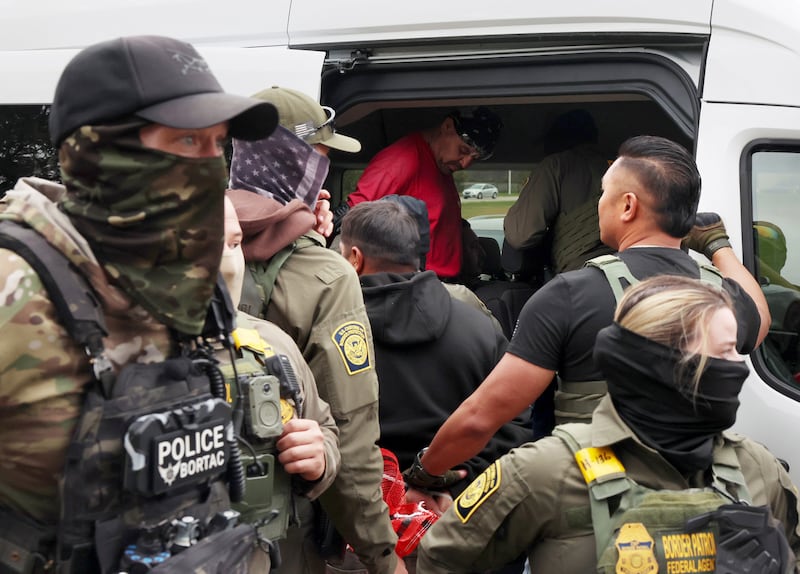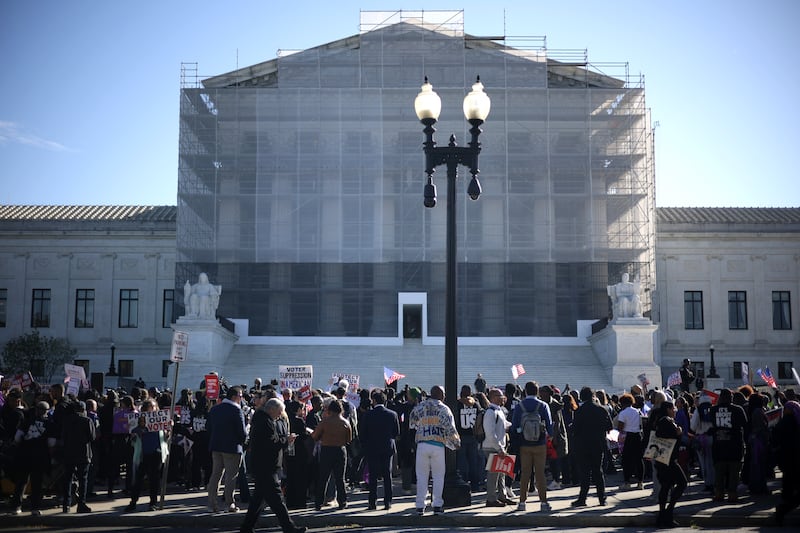President Donald Trump has demanded that the Supreme Court decide whether he can deploy the National Guard in Chicago after two lower courts ruled against him.
On Friday, the 79-year-old president filed an emergency appeal to the Supreme Court saying that the decisions from Judge April Perry of the U.S. District Court for the Northern District of Illinois and the 7th Circuit Court of Appeals, which block his attempt to send the military into Illinois to quell ICE protestors, “improperly impinge on the president’s authority and needlessly endanger federal personnel and property.”

In an attempt to argue that ICE protestors are radically out of control, the emergency appeal argues, “The federal agents’ efforts are met with prolonged, coordinated, violent resistance that threatens their lives and safety and systematically interferes with their ability to enforce federal law.” The Daily Beast has reached out to the White House for comment.
The White House was caught trying to pass off footage of violence in red states as footage from the “chaos” in Chicago last week.
In the previous two rulings, judges sternly rebuked the president’s characterization of the situation in Chicago.
Perry said she had “seen no credible evidence that there is a danger of a rebellion in the state of Illinois” in her ruling. She added that the Trump administration displayed “a troubling trend” of “equating protests with riots and a lack of appreciation for the wide spectrum that exists between citizens who are observing, questioning, and criticizing their government, and those who are obstructing, assaulting, or doing violence.”
The 7th Circuit Court of Appeals panel—which consisted of one Trump appointee, an Obama appointee, and an H.W. Bush appointee—wrote on Thursday, “Political opposition is not rebellion.”
“A protest does not become a rebellion merely because the protestors advocate for myriad legal or policy changes, are well organized, call for significant changes to the structure of the U.S. government, use civil disobedience as a form of protest, or exercise their Second Amendment right to carry firearms as the law currently allows,” the panel wrote.

The president is attempting to invoke the 1827 Martin v. Mott ruling to justify deploying troops to Chicago. In that instance, the court ruled against a militiaman who refused to mobilize for the War of 1812 because he did not believe it was necessary. In that instance, the Court ruled, “the authority to decide whether the exigency has arisen belongs exclusively to the president.”
Trump is arguing that, based on that precedent, courts have no authority to review the president’s decision to mobilize the National Guard.
Critics—and now two courts—have said there is a significant difference between ordering troops to mobilize against a foreign invader and Americans exercising their First Amendment rights.
Even if the Supreme Court rules against Trump in the case, there’s no guarantee that Trump will abide by their decision. In a Thursday interview with The New York Times, Justice Amy Coney Barrett admitted that the Supreme Court has no power to ensure the president obeys its decisions.
The post Trump Begs Supreme Court to Let Him Go to War With Chicago appeared first on The Daily Beast.




